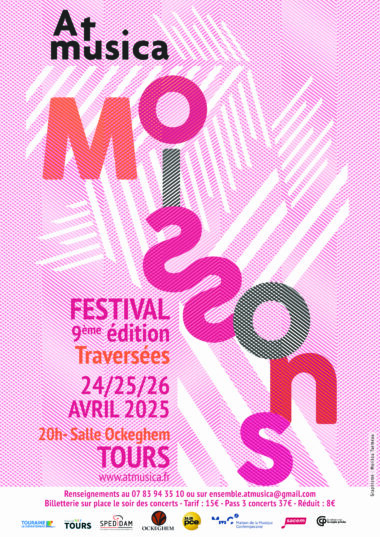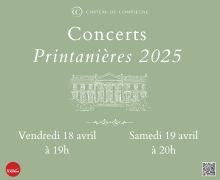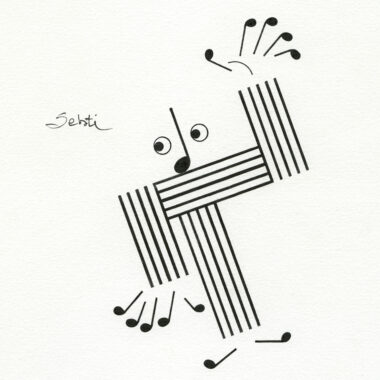Martin T:son Engström, the Verbier Festival director in high spirits
Plus de détails
Founder and the brains behind the Verbier Festival, Martin T:son Engström is a talent finder who tirelessly launches new projects. As the Verbier Festival enters its third decade, he revives the festival’s history and tell ResMusica about its new developments.
 « If you want to make a career, you have to find a family who will adopt you. »
« If you want to make a career, you have to find a family who will adopt you. »
ResMusica: Last year, the Verbier Festival celebrated its 20th anniversary. What does the Festival mean to you?
Martin T:son Engström: After working as an agent in Paris for 12 years, I wanted to create something by myself. In that role, you're in the middle of the game. To earn your 10% commission, you must keep quiet and not express your wishes and ideas. In the long term, It was frustrating because I always had this creativity in me. I started my career by producing a series of concerts in Stockholm at the National Museum, with six recitals a year, for which I did all the contracts, organization and communication. At 18, I organized a recital with Dietrich Fischer-Dieskau and Wolfgang Sawallisch. In 1986, when bombs exploded on the Rue de Rennes, I became tired of Paris. My wife, Barbara Hendricks, and I decided that we did not want to stay in Paris with our two young children. I sold my share of the agency and we moved to Montreux in Switzerland where I continued working as an agent and freelance consultant.
RM: That's when you discovered Verbier?
MTE: Yes; we had a small chalet there, where we went skiing in the winter, and in the summer I went to see what it was like. The hotels and restaurants were all open; it was very nice but completely empty– absolutely depressing. You could ski on the glacier before noon (you can't do that any more) and you could do a lot of sports. The situation was ideal. I contacted the tourist office and asked if they would be interested in a festival. The manager told me he was trying to develop some summer activities but didn't know where to begin. I arrived at the right time. They didn't have too much money; I asked for a 3-year exclusivity so I could start the project without having competitors. I defined an outline of my ideas: a youth orchestra, an academy … I had 4 godmothers: Barbara Hendricks, Marthe Keller, Isabelle Huppert and Diana Ross. I never saw the Festival as exclusively about classical music; for 10 years, its subtitle was « a performing arts community » and it included theatre.
RM: And in terms of funding?
MTE: I started by sending letters to the CEOs of the 50 largest companies in Switzerland: 48 did not respond; one replied that they were not interested and one asked why they should fund me. The latter was the CEO of Nestlé, with whom I managed to schedule an appointment for five months later. On the day of the meeting, he greeted me at the door of his office, saying: « Sir, my department has advised me not to support you. You have 20 minutes to convince me! » After those 20 minutes, he said « I believe you; you have your money. » He assisted me on two occasions when we were struggling financially. With hindsight, I can see that the funding difficulties were positive because they forced the local authorities to support us.
RM: What was Nestle's motivation to help you?
MTE: All orchestras and festivals are created by people like me, who are a bit crazy, who have a passion, who don't really think about the economics involved, because if you do, you don't even start! You must have the strength to really go ahead and not stop, because there are so many problems at each stage that you have to keep your motivation strong. He believed in me, he knew what I wanted and I had a good address book. Secretary General Avi Shoshani also had contacts, and together we covered a large part of the global musical establishment.
RM: How do you attract artists to the Festival?
MTE: That is not really a problem. We immediately established a maximum fee, which we kept the same for 20 years. If artists don't accept what I can pay, I can do nothing. I knew their regular rates and that I could'nt afford them. So there's no discussion about money. I'm quite proud that the values we have established at Verbier are sufficiently attractive to the artists to make them come.
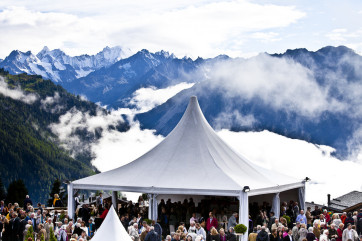 RM: What benefits are in it for them?
RM: What benefits are in it for them?
MTE: They come to practice chamber music, with the understanding that they must play a new work, or with new partners. It's not for the purpose of a playing a recital for a lower fee but it is to have new musical encounters. I had many artistic ideas and felt the need to participate in the creative process. I didn't want to be on stage but wanted to be behind the scenes, proposing works. Verbier was the only place where Evgeny Kissin played chamber music with Martha Argerich, Gidon Kremer, or James Levine. Even the great Martha Argerich had long been trying to play with Misha Maisky and Kremer, and the first time she did so was at Verbier in 1997! Menahem Pressler had never played with a singer. but he did it for the first time with Christophe Pregardien, aged 90, and since that time they have had 10 more proposals. When I can motivate an artist of such a high caliber to go even further– someone you would think had done everything in his life– that gives me great satisfaction.
RM: One of the features of Verbier is its ability to initiate new projects, such as Camp Music. Can you tell us about the philosophy of this project? And why now?
MTE: Everything depends on funding; I had to find someone willing to get started with me financially. The real reason for the Festival's existence is the Academy: 300 young people are there in the summer to learn, to be stimulated, to take master classes, to meet their colleagues. Verbier is very small and you run into all the artists in the cafes, restaurants, and even in the supermarket. Here, no one is anonymous! In Salzburg, they have very interesting courses but it's difficult to come across musicians in the city. I found a place that fits my needs: stimulating, learning, giving, receiving- anything is possible.
RM: As a sideline of the Festival, there's an amateur week. Why have amateurs become associated with the Festival?
MTE: There are a lot of music lovers in the world- bankers, doctors- who are not impoverished young musicians. The idea is also to develop other sources of income. All projects cost money; we have a budget of almost 10 million Swiss francs. The cost of education is 40%, and every year we must find these funds.
This year, we commissioned McKinsey to do an audit of the economic benefits of the festival for the region. The festival sells 42,000 tickets and hotels and restaurants are full for 3 weeks. Thus, we create a summer economy. With all those involved in regional tourism, we made our presentation to the authorities of the canton of Valais. They asked me what was the biggest challenge; I replied that it is to continue, to find those 10 million francs.
RM: The audience at the Verbier Festival is very international, but what about the Swiss public?
MTE: 60% of the public comes from French-speaking Switzerland, 20% from France, 10% from German-speaking Switzerland and 10% from elsewhere. These statistics have significantly changed recently: the French audience has become more important. People stay longer,for an average of five and a half days. They rent an apartment and bring their families, which brings us an audience for concerts that are less popular in terms of repertoire because people do not make the trip up to to Verbier for just one concert.
RM: While the monetary crisis severely affects the cultural world, the Verbier Festival continues to advance and innovate. What is your secret?
MTE: Large corporations give less in sponsorship. Switzerland is a rich country, but French-speaking Switzerland has only 20% of the wealth and there are no large companies, except for Nestlé. Large pharmaceutical companies are in Basel, in German-speaking Switzerland. It's increasingly difficult to find the money, but we have more and more private donations from everywhere. We have people who work all year to keep in contact with these donors. In the early years, we had sponsorships rather than private donations; now it is the opposite. 85% of our donors spend a little time in Verbier or know the place; the remaining 15% are motivated by our work on education. We are lucky to have a budget made up of 4 pillars, each representing 25%: sponsorship, private donations, ticket sales, and subsidies.This structure helps me when some of the sources of income are weaker. Each pillar has to contribute to the Music Camp and the large orchestras. We pay for everything for the musicians of the Academy, even furnishing some pocket money, and everyone gets a scholarship.
RM: The Verbier Festival has always been on the internet, with concerts made available online. Is it important for a festival to be active via Internet?
MTE: Six years ago, with Medici, we began to release about thirty of our concerts live on the internet, We now have 2 million connections. Since 2012, the audience has exploded. We were the first festival live on the internet and I know that many other festivals are trying to follow our example now. We have a beautiful catalog of original programs and we also release 3 or 4 DVDs per year.
RM: For this 2014 season, you will host the Vendome Prize. Why host such an event as part of an already full festival?
MTE: Alexis Gregory, the founder of the Vendome Prize, came to Verbier to satisfy his curiousity. We hit it off and then spent some time together in New York and London. We have similar preferences in pianists. A very generous man with impeccable taste, he has helped a great many young pianists and given a sense of security to many young people. When he told me about his competition, I offered to host it. There will be11 finalists who will play at Verbier; then three finalists will perform a quintet with the Jerusalem String Quartet (either Schumann, Brahms, or Dvořák.) Rather than the usual matadors we see in competitions, we seek older pianists– artists who have lived a little and can deliver a more profound musical message.
RM: One of the basic tenets of the Verbier Festival is « to encourage young musicians to think about their careers, about how they present themselves to the public and how they perceive themselves » – a quote from a press release in 2011. Why are these aspects important? What would be the ideal young artist for the twenty-first century?
MTE: I have been president of the Clara Haskil, Horowitz and Tchaikovsky competitions and am keen to identify these talents. For example, there is Daniil Trifonov, first prize in the 2011 Tchaikovsky Competition. I saw him every two months, when he was with a little-known Italian agent and had to be careful not to make missteps. Also, when the cellist, Han Na Chang was only 10, he came to Misha Maisky's class with his father, who didn't know to whom he should say yes or no. These critical early years are the ones that of most interest to me and Verbier allows me to be involved in working with young artists. To make a career today is very different from what it was 20 or 30 years ago. At that time, if a young artist had an engagement with Karajan or at Salzburg, his career was made… There were many television shows to launch musicians. Even in the very musical Germany, all that does not exist any more… To make a career, you must become part of a family who adopts you, who will encourage you and push you, in the early stages of your career. The Academy is an important source of networking; all year long, with scholarships and instruments, we try to help those young people who have gone through our training. In 1995, its second year, Renaud Capuçon attended the Academy. There he met his agent and another person who helped him get his instrument. He now plays the violin that belonged to Isaac Stern, who was the master of the Academy.
The Verbier Festival 2014 will take place from July 18 to August 3. ResMusica is the media partner of the Verbier Festival 2014.
Photo credits: Aline Paley, Fred Hatt and Nicolas Brodard
Plus de détails
Founder and the brains behind the Verbier Festival, Martin T:son Engström is a talent finder who tirelessly launches new projects. As the Verbier Festival enters its third decade, he revives the festival’s history and tell ResMusica about its new developments.






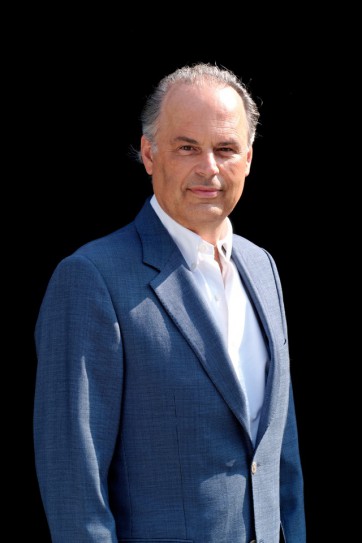 « If you want to make a career, you have to find a family who will adopt you. »
« If you want to make a career, you have to find a family who will adopt you. »